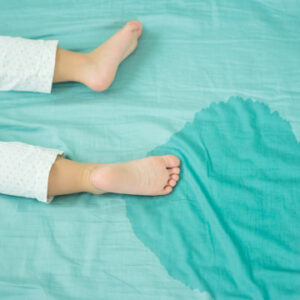 Santa Cruz, Scotts Valley CA
Santa Cruz, Scotts Valley CA
Bedwetting can be an embarrassing problem, especially for older children, and it can be frustrating for parents who feel they are powerless to help. Also called nocturnal enuresis, bedwetting is a common childhood issue that can persist into adolescence and sometimes even into adulthood. Recent research has revealed a surprising connection between bedwetting and pediatric sleep apnea, which can usually be treated non-invasively and comfortably by — another surprise — a dentist.
Today, our pediatric sleep apnea dentist in Santa Cruz is looking at ways that advancements in dental technology can help your child get a much-needed, uninterrupted, peaceful night’s sleep.
What are the symptoms of pediatric sleep apnea?
Like sleep apnea in adulthood, pediatric sleep apnea can have a myriad of symptoms.
Let’s take a look at a few:
- Snoring — Persistent loud snoring is one of the most common symptoms of sleep apnea in children and adults.
- Breathing pauses during sleep — If you notice your child stops breathing for short periods while asleep — especially if the pauses are followed by gasping or choking sounds — your child may be suffering from sleep apnea.
- Restless sleep — Children with sleep apnea may toss and turn frequently and wake up often during the night.
- Mouth breathing — This may seem like a harmless symptom, but when a child prefers to breathe through their mouth rather than their nose during sleep, it’s a sign of sleep apnea. It can also lead to dry mouth, which contributes to tooth decay.
- Daytime sleepiness — If your child is in bed for the recommended hours each night but still seems to be excessively sleepy during the day — possibly affecting mood and school performance — it may be time to speak with our dentist about children with sleep disorders.
- Difficulty concentrating — Sleep apnea can lead to poor concentration, and many times it’s misdiagnosed as ADD, ADHD or other behavioral problems.
- Bedwetting — Some children with sleep apnea may experience bedwetting, even if they were previously toilet trained.
- Night terrors — When children have sleep disorders such as insomnia or sleep apnea, they suffer from restricted oxygen while sleeping. The brain often responds to this subtle form of suffocation by going into fight-or-flight mode. This can result in what we call night terrors, a type of parasomnia characterized by sudden episodes of intense fear or terror during sleep.
- Morning headaches — Like adults, children with sleep apnea may wake up with headaches because of disrupted sleep patterns and reduced oxygen levels during the night.
- Failure to thrive — In the most severe cases, pediatric sleep apnea can lead to poor growth and development.
How is pediatric sleep apnea diagnosed?
If you believe your child may be suffering from sleep apnea, or if s/he has symptoms that indicate sleep apnea and you’d like to rule it out, give our Scotts Valley pediatric sleep apnea dentist a call. We work with sleep specialists to make diagnoses and formulate customized treatment plans.
How is pediatric sleep apnea treated?
The root cause of a child’s sleep disorder could be dental issues that we can treat in our Santa Cruz family dentist office. We treat sleep pediatric disorders with simple, comfortable, custom-designed oral appliances. The clear plastic trays correct tongue and jaw posture, opening the airway and limiting mouth breathing at night. Oral appliances help guide facial growth and jawbone development, widen dental arches and straighten teeth.
PEDIATRIC SLEEP APNEA TREATMENT IN SCOTTS VALLEY, SANTA CRUZ, AND LOS GATOS, CALIFORNIA
Early intervention is key to treating pediatric sleep apnea before it becomes a bigger issue that begins to negatively impact your child’s overall health. If your older child is still wetting the bed, breathing with an open mouth at night or experiencing night terrors, restless sleep or morning headaches — if you notice that s/he is struggling with concentrating or staying awake at school — then it’s time to contact our office at Ebrahimian Integrative Dentistry. Everyone deserves a peaceful, full night’s sleep, and it’s especially important for a growing child. If your child is demonstrating some of the symptoms associated with pediatric sleep apnea, give our office a call at (831) 824-5111 or reach out to us online to schedule a consultation today.